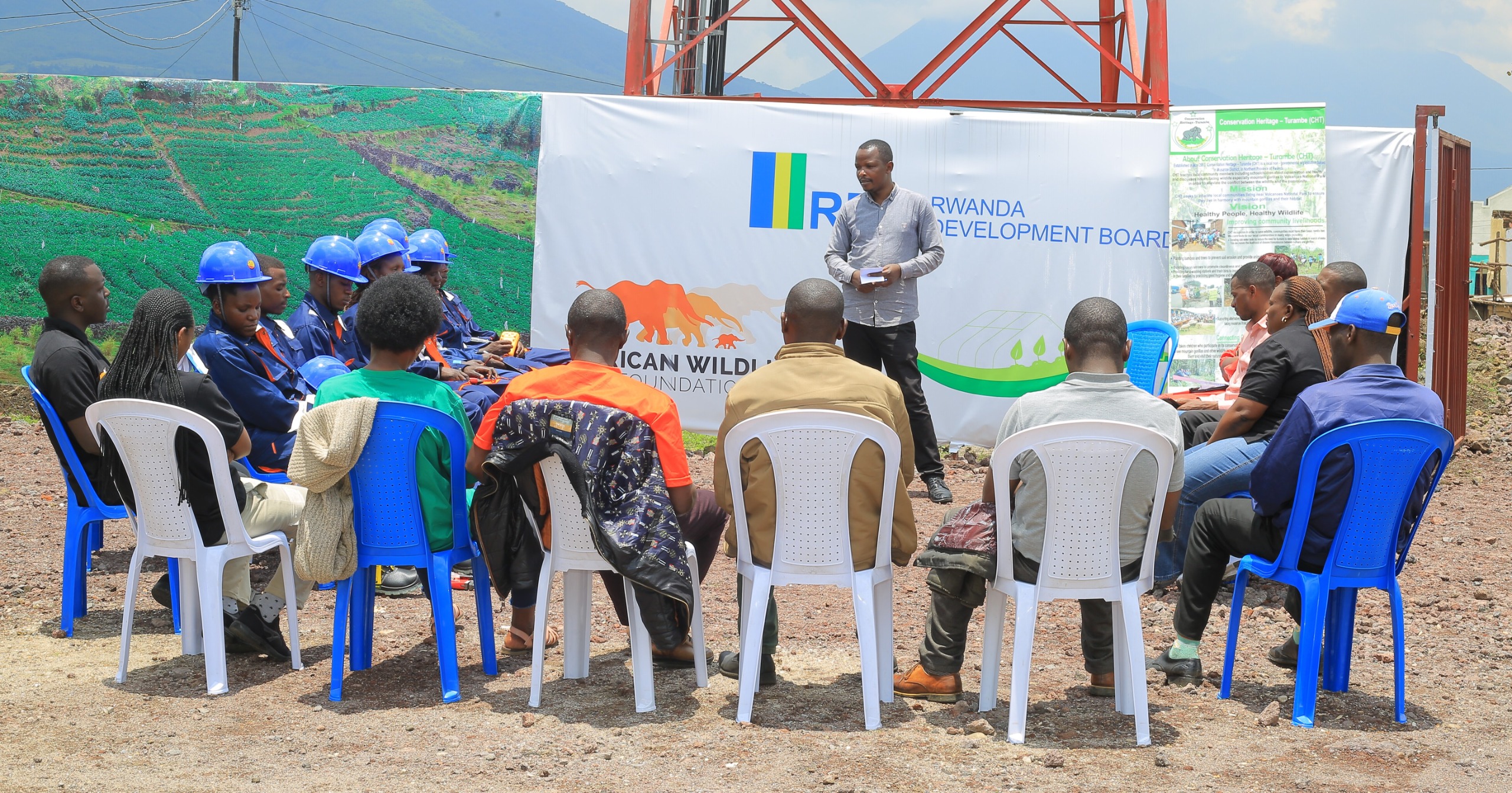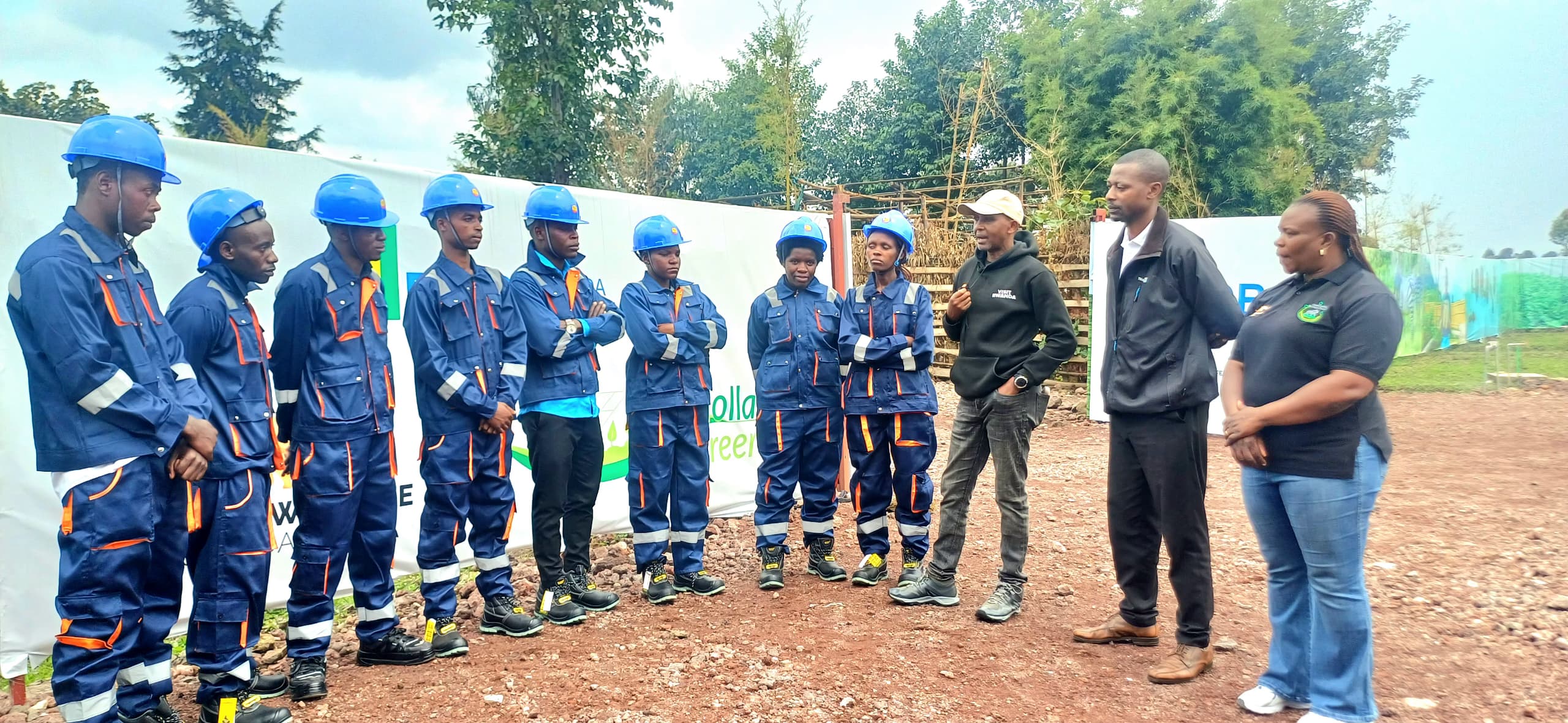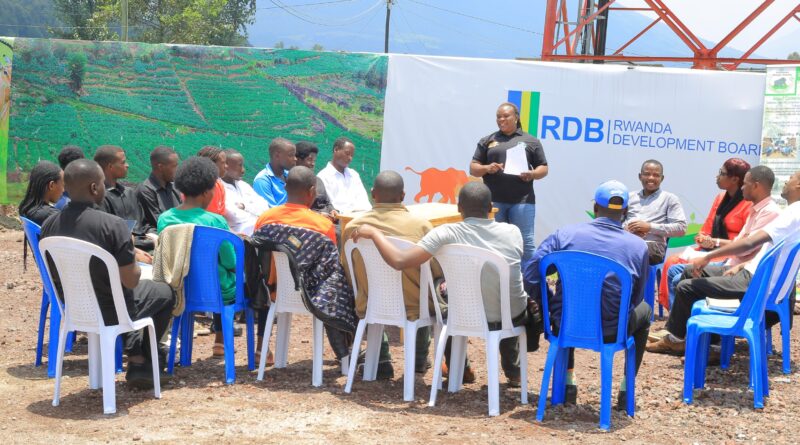CHT Equips 8 TVET Graduates with Toolkits to Launch Their Careers
As part of the Volcanoes Community Resilience Project, Conservation Heritage – Turambe (CHT), in partnership with the Rwanda Development Board (RDB) and with generous support from the African Wildlife Foundation (AWF), has equipped eight youth graduates with professional toolkits to help launch their careers.
These young individuals, drawn from communities surrounding Volcanoes National Park (VNP), completed intensive vocational training in carpentry, plumbing, electrical work, and construction, positioning them to become economically empowered and self-reliant.
The toolkits tailored to each graduate’s trade will enable them to immediately apply their skills, start their own enterprises, secure employment, and contribute meaningfully to their communities.
This milestone reflects the project’s commitment to community-centered conservation, where local people are not only stewards of biodiversity but also beneficiaries of inclusive development.
The distribution event took place on Friday, September 26, 2025, at the Horticulture Hub in Rurembo Village, Kaguhu Cell, Kinigi Sector, Musanze District. It brought together leaders from partner institutions, students, and representatives from Volcanoes National Park.
As the relocation program progresses, these skilled youth are expected to play a pivotal role in the development of the new Smart Green Village – an eco-friendly settlement designed to promote sustainability and resilience.
Their trades will be essential in building and maintaining infrastructure, reducing reliance on external labor, and fostering community ownership.
Several beneficiaries shared their gratitude and optimism with Greenafrica.rw.,Marcel Niyibizi, from Kaguhu Cell, said:
“I first studied languages and literature in secondary school but couldn’t find employment. Later, I was given the opportunity to study carpentry. I had the skills but lacked the tools. Now I finally have what I need to shape my future.”
Teddy Uwizeyimana, another recipient, added: “I also studied carpentry. Now I can make doors, windows, beds, and other furniture needed in the new settlement. Our biggest challenge was lack of equipment, but this problem has now been solved. Our goal is to improve ourselves and support our parents.”
Uwumuremyi Jean Paul, Social Affairs Officer in Kinigi Sector, emphasized the national vision:
“The Government of Rwanda aims for at least 60% of lower secondary graduates to pursue technical and vocational training to reduce unemployment. These toolkits will help youth create their own jobs and contribute to the Smart Green Village.”
He further noted that the upcoming settlement will include services aligned with the trades these youth have mastered, ensuring they play an active role in community development rather than depending on external support.
Valerie Akuredusenge, Program Director at CHT, stated: “We appreciate our partnership with RDB and acknowledge AWF’s continued support in this second phase. These toolkits will help youth assist relocated families in maintaining infrastructure at the Smart Green Village.”
She also announced that in 2025, an additional 30 youth including teenage mothers will be trained in trades such as hairdressing, culinary arts, barista skills, and nail care, further promoting self-reliance and economic inclusion.
Prosper Uwingeri, Chief Park Warden of Volcanoes National Park, underscored the importance of the initiative: “We came to hand over these tools to youth from the first four villages being relocated. Thanks to their vocational skills, they will be the first to support the construction and sustainability of the Smart Green Village. They now have a chance to actively engage in development using both knowledge and tools provided.”
He also encouraged the youth to use this opportunity responsibly and support peers who did not have access to TVET training.
This initiative aligns with Rwanda’s national TVET policy, introduced in 2008 to promote hands-on skills and reduce youth unemployment. According to the National Institute of Statistics of Rwanda (NISR), youth unemployment (ages 16–30) stood at 19.6% in 2023, compared to the national average of 16.5%.
Meanwhile, 70% of TVET graduates secured employment within six months of completing their studies.
A 2022 World Bank report further highlighted that Micro, Small, and Medium Enterprises (MSMEs) often started by youth – account for 30% of new jobs in Rwanda. By 2024, Rwanda Polytechnic had established eight Integrated Polytechnic Regional Colleges (IPRCs) and over 400 TVET schools nationwide.
Through this joint effort, CHT and AWF are complementing national policies by strengthening youth capacity, reducing unemployment, and enhancing community livelihoods, while also supporting biodiversity conservation and the expansion of Volcanoes National Park.









